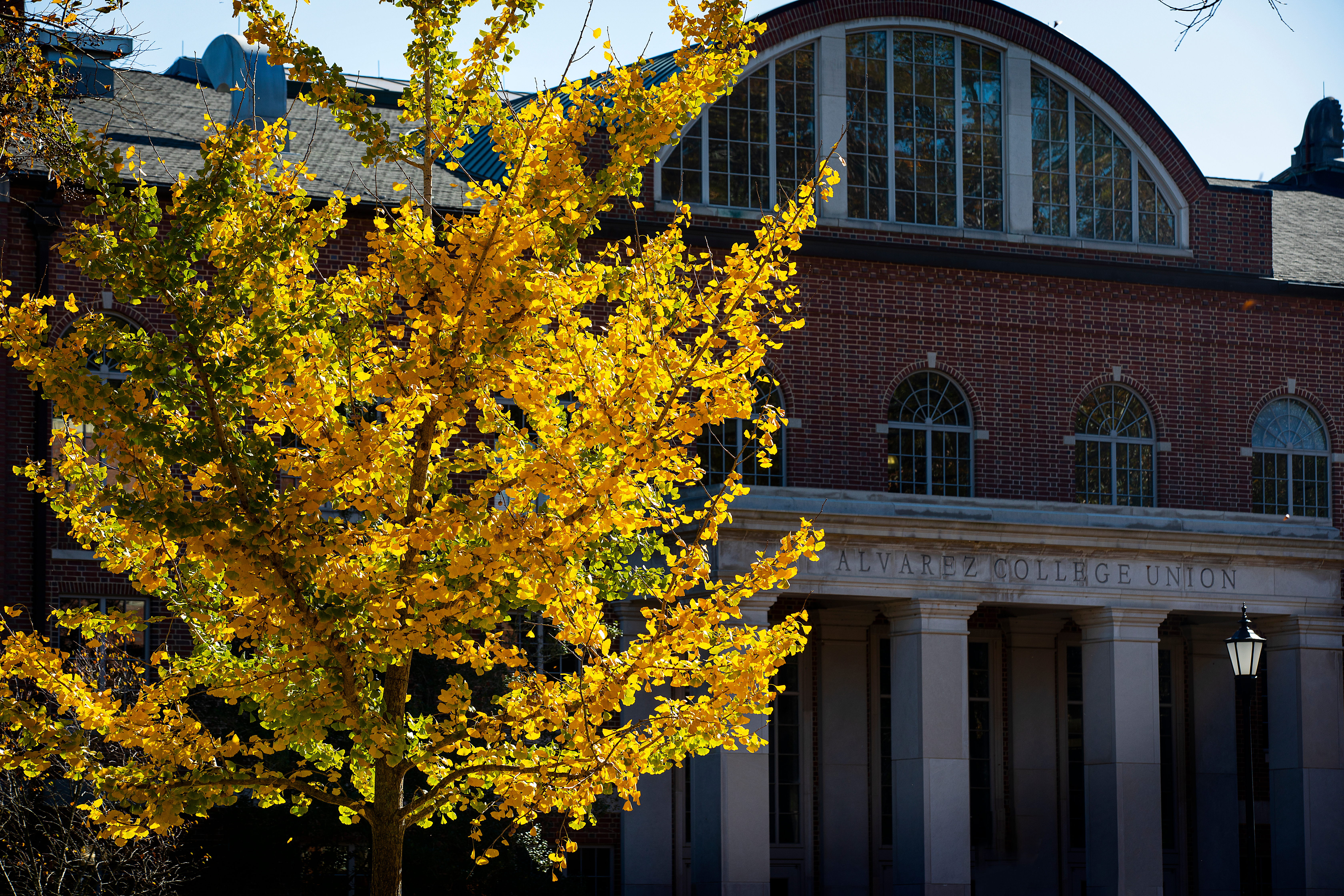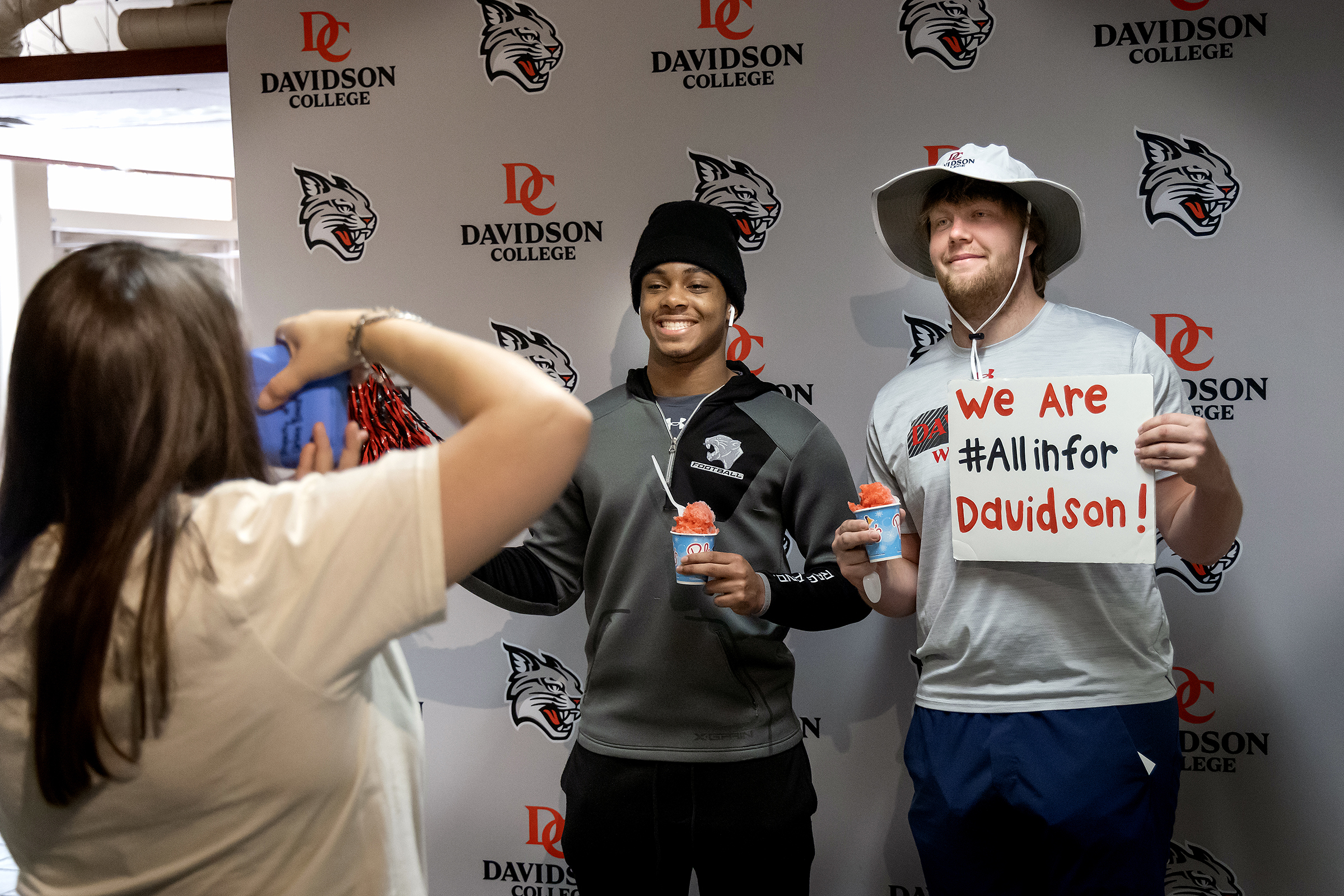Royal Shakespeare Company to Begin Four-Day Davidson Reign
September 7, 2022
- Author
- Jen McGivney

The renowned Royal Shakespeare Company is back on campus, a continuation of its more than 20-year relationship with Davidson College.
For four days, all the campus is a stage, and all the students (and faculty and neighbors) merely players.
The Royal Shakespeare Company returns to Davidson College to hold a residency from Sept. 8-11. They’ll offer workshops on directing, acting and teaching; some exclusively available to students, while others will be open to faculty, staff and the community. Many of these workshops will center on Friday’s film screening of the RSC’s gender-reversed production of The Taming of the Shrew, with a panel discussion following.
“It’s incredibly rare that a community of this size, or a college of this size, has access to the skills and expertise of a company like the RSC,” said Mark Sutch, chair and associate professor of theatre. “This is one of the two or three most recognizable and influential theatre companies in the world. This learning residency helps to further the national profile of Davidson as a center for intellectual and artistic creativity.”
RSC has come to Davidson several times before: The relationship between the college and RSC goes back 20 years. When Duke Family Performance Hall opened in 2002, RSC helped commemorate the occasion with performances of The Merchant of Venice. They stayed on campus for two weeks, offering stagecraft workshops for students, faculty and the community. RSC returned four more times with more workshops and performances. RSC intended to reunite with Davidson students in a 2020 program in Chicago, but, alas, the fault was not in our stars, but in COVID.
Endlessly Adaptable William
What is it about Shakespeare that keeps audiences and readers returning to examine 16th century works in new ways, generation after generation? Sutch credits this to a winning combination: how Shakespeare wrote (beautifully) as well as the subjects he wrote about (timeless).
“Shakespeare didn’t write as many plays about contemporary England as other playwrights of that era did, so his plays don’t contain as many dated and obscure references,” Sutch said. “He was also clearly more interested in the universal. He addressed contemporary issues of his time by using fantasy, mythology and history, which are still relevant to us today.”
For all the universality of Shakespearean texts, that same universality didn’t extend to Shakespearean performances—which, for a while, were all male, and, for a much longer while, were nearly all white. Directors, actors and critics are challenging that. Think of last year’s film The Tragedy of Macbeth by Joel Coen, which starred Denzel Washington as Macbeth, or this year’s all-Black production of Much Ado About Nothing by RSC. Also this year, artists from Afghanistan to Zimbabwe are exhibiting pieces about Shakespeare at his birthplace and final residence. Or, closer to home, there’s Chickspeare, Charlotte’s all-female Shakespeare company.
“Shakespeare’s works are so rich, provocative, and evocative that they provide endless, bottomless opportunities for thinking and imagining,” said Cynthia Lewis, the Charles A. Dana Professor of English. “Whether you’re analyzing a play from an academic standpoint, staging a play according to a new vision, or adapting a play to an entirely new version, the creativity within and inspired by Shakespeare’s canon never runs dry.”
Anne Lambert ’86, a founding member of Chickspeare, was a student of Lewis’s. Although Lambert arrived at Davidson with a love of Shakespeare, she credits Lewis for “inspiring this life-long fire that I can’t put out.”
Considering the gender-bending work of Chickspeare, Lambert is especially excited about attending the RSC screening of Taming of the Shrew.
“One of the things that [Lewis] taught me is that Shakespeare invented words that hadn’t been in existence before because he needed them to convey what he wanted to convey,” Lambert said. “So, a guy who created words in order to convey the intent of a play is somebody who would definitely give a blessing to anybody taking those words 450, 500 years later and doing whatever they wanted to do.”
Inviting a Wide Audience
Lambert attended past residencies of RSC at Davidson, and she said the effects of putting many Shakespeare lovers together continued long after the residency ended: introductions became auditions, strangers became collaborators.
“That’s the kind of connective tissue that is formed when you have a residency like this,” she said. Lambert also says that the actors she saw during past RSC residencies have gone on to appear in everything from Masterpiece Theater to Marvel movies.

Lewis not only hopes to see lots of faces at the screening and workshops, but lots of different kinds of faces. This isn’t just for established Shakespeare devotees. Lewis has a former student who’s bringing her fourth-grade daughter to a workshop. The girl studied Shakespeare at school and wants to learn more.
“That’s the kind of curiosity and passion this residency will cultivate,” Lewis said.
Lambert hopes the residency also will draw people who are new to Shakespeare, or even those who may think they’re not the Shakespeare type.
“There can’t be a better and easier doorway into Shakespeare than through the Royal Shakespeare Company. This whole series will have something for everyone,” Lambert said. “They are going to bend over backwards to make this entertaining and fun and frolicking. I cannot wait. I am thrilled.”



